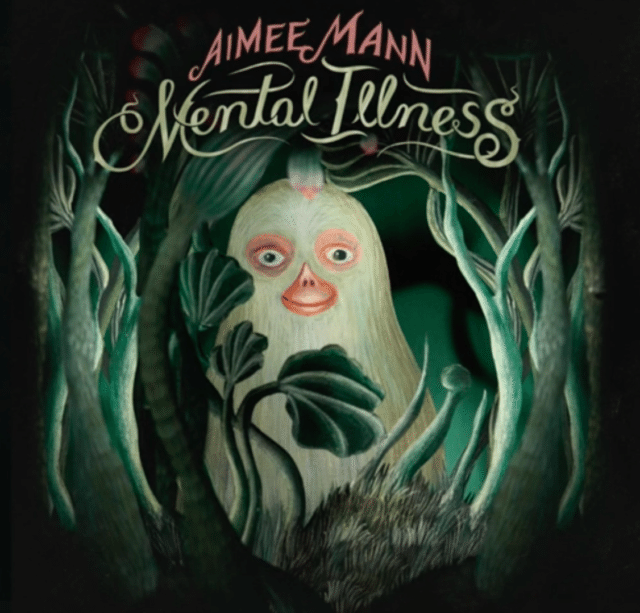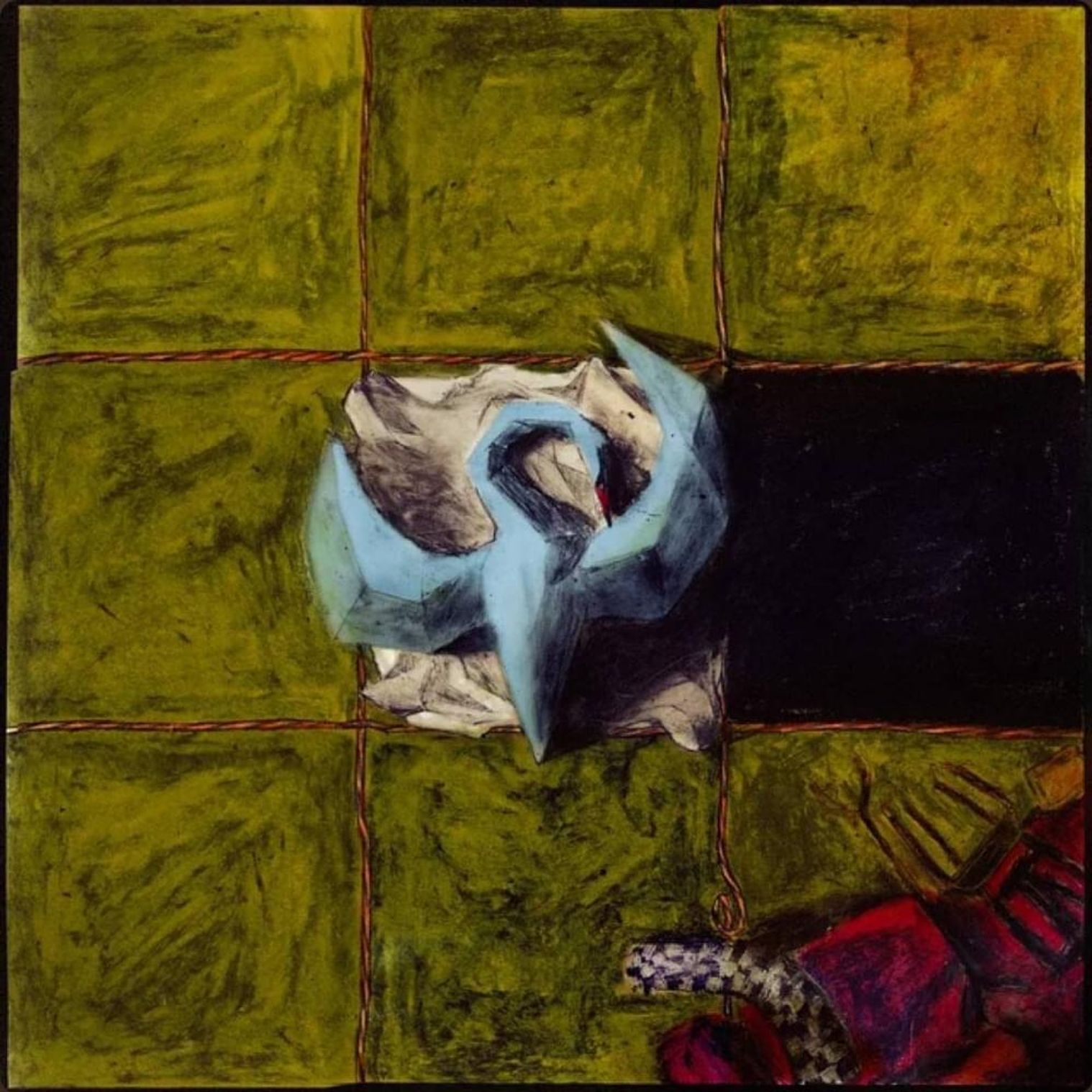In 1985, at the second annual MTV Video Music Awards, 'Til Tuesday, the new wave band that Aimee Mann formed when she was in college, won the Best New Artist In A Video moonman. They beat Sade and Frankie Goes To Hollywood and Sheila E. Some other artists who released their first albums in 1985: Whitney Houston, LL Cool J, the Jesus And Mary Chain, Megadeth, the Dead Milkmen. Point is: Aimee Mann is not new to this. She's always been there, usually on the margins of the pop universe, knocking out a fresh batch of good-to-great songs every few years. That's the sort of career that's easy to ignore or neglect. But if you look at everything Mann has done, that career is an absolute wonder.
I have a weirdly specific memory of this conversation I overheard in my high school hallway during 9th grade. When I was a freshman, my suburban Maryland high school had a rap group that apparently signed a major-label deal around the time the guys in the group graduated, though I never confirmed that with them or anything. (The yearbook said they'd signed the deal, anyway.) Nothing ever came of it, but those guys seemed impossibly cool at the time. They always DJed the school dances, and all the white ones -- I think they were like 60% white -- had MC Serch haircuts. This particular conversation: One of them was trying to convince all the others that Aimee Mann's "That's Just What You Are," a song that was then in medium modern-rock-radio rotation, was a good song, maybe trying to get them to work it into DJ sets or whatever. All the other guys in the group were making fun of him. I remember thinking: "But that guy's right." He was. It's a great song.
Jon Brion produced "That's Just What You Are." And Mann has the distinction of being the first musician with the foresight to hire Brion, a former touring member of 'Til Tuesday, as a producer; he helmed her first two solo albums. In Paul Thomas Anderson's Magnolia, there's a surreal scene where everything stops so that every major character in the movie, the Tom Cruise pick-up artist guy very much included, can sing Mann's "Wise Up." (In fact, the whole Magnolia soundtrack is pretty much all Aimee Mann songs along with a couple of Supertramp tracks. It rules.) Mann's Magnolia song "Save Me" got nominated for an Oscar in 1999, and she performed it at the ceremony, something that would've seemed weirder if Elliott Smith, her fellow regular at the LA music-and-comedy club Largo, hadn't looked even more out-of-place performing just before Celine Dion at the Oscars two years earlier. Mann trained with the famous boxing coach Freddie Roach and then wrote a whole concept album about it. And there's reportedly a scene in Atomic Blonde, the new movie from John Wick co-director David Leitch, where Charlize Theron kills a bunch of motherfuckers to "Voices Carry," the song that won 'Til Tuesday that VMA more than 30 years ago.
I'm saying: Aimee Mann belongs in some kind of hall of fame, and the release of her new album Mental Illness deserves to be treated as an event. It's not -- not really -- since Mann has always been such a low-key presence and since Mental Illness is a very low-key collection of songs. But you should be excited about it anyway. Mann's last two albums -- 2012's Charmer and 2014's The Both, recorded as a duo with Ted Leo -- tended toward precise, hooky power pop, a sound that comes naturally to Mann. But Mental Illness has a sound that might come even more naturally to her. It's lush and pretty and mostly acoustic, with strings and pianos and oohing backup vocals. Mann has spoken about how '70s soft-rockers like Dan Fogelberg influenced the sound of the new one, and while many of us might take a soundbite like that as a warning, the warmth of that sound fits Mann's calm, conversational voice beautifully.
It's definitely a bit too on-the-nose to call an album Mental Illness, but Mann is an oblique and specific songwriter, one who doesn't bother to meet audiences halfway. "Goose Snow Cone," the album's opening track and first single, is about seeing a picture of a cat named Goose wearing one of those conical neck things that pets have to wear sometimes after they've been to the vet. Just listening to the song, though, you'd have no way of knowing that. It doesn't matter to Mann, and it shouldn't matter to you, either. The songs on the album are a bit hard to follow lyrically, but their sentiments are as bell-clear as the album's warm, spacious production. She's singing about feeling sad and removed and not being sure what to do. Her images are concise and poetic even when you're not totally sure what they're about: "Hip hip hooray, hocus pocus / With some magic, you can fly through the air / But when you’re the guy pulling focus / There are people who wish you weren’t there." And she delivers them with a matter-of-fact frankness that makes them feel true on some fundamental level.
Mental Illness has an appealing family-affair thing going for it. Mann is working with people she knows and trusts. Producer Paul Bryan worked on her last three solo albums, as well as the Both's album. Jonathan Coulton, a singer-songwriter who works a knowingly nerdy joke-music angle and who puts out music on Mann's SuperEgo label, shows up a bunch of times as a musician and as the co-writer of a few songs. (There's no comedy in Mann's record, thankfully.) Ted Leo sings backing vocals even though these songs are aesthetically pretty far away from what he likes to do. Maybe that's why the album has such a calm, serene Sunday-afternoon sensibility. Mann might sing about profound sadness, but the music is so lovely and welcoming and intuitive that it feels like a balm.It's a very pretty album in a quiet way, a way that never forces that prettiness down your throat. It's restorative music.
Mental Illness isn't going to win Mann another VMA or make her Magnolia-level famous again. It's just one more collection of very good songs in a career full of them -- though, this time around, the songs are even better they've been in the last few outings. It's not an album that'll grab your attention, but it is an album that'll reward whatever attention you choose to give it. Let it into your life. You'll probably be happy you did.
Mental Illness is out 3/31 on SuperEgo. Stream it below, and read our interview with Aimee Mann here.
Other albums of note out this week:
• Kodak Black's long-awaited major-label debut Painting Pictures.
• Lydia Ainsworth's sweeping, cinematic Darling Of The Afterglow.
• Pile's erudite DIY rocker A Hairshirt Of Purpose.
• Christian Scott's funky New Orleans jazz experiment Ruler Rebel.
• Mastodon's riff-stomper Emperor Of Sand.
• Freddie Gibbs' hard-rapping return You Only Live 2wice.
• Bob Dylan's triple album of standards Triplicate.
• Wire's spare, intense post-punker Silver/Lead.
• Pharmakon's noise-drone wallow Contact.
• Chaz Bundick Meets The Matson 2's self-titled collaborative album.
• Goldfrapp's glimmering, mystical pop LP Silver Eye.
• Tei Shi's bedroom-R&B adventure Crawl Space.
• Ambient Baths side project Geotic's new album Abysma.
• Body Count's shockingly durable Bloodlust.
• Brooklyn Youth Chorus' guest-heavy Black Mountain Songs.
• Richard Edwards' folk-pop solo move Lemon Cotton Candy Sunset.
• Fall Of Rauros' folky, atmospheric black metal seance Vigilance Perennial.
• Somi's artful jazz/R&B hybrid Petite Afrique.
• Matt Mitchell's knotty, expressive jazz album Førage.
• Phantoms' self-titled synthpopper.
• Saltland's orchestral, environmentally themed A Common Truth.
• Jamiroquai's big return Automaton.
• British Sea Power's festival-rocker Let The Dancers Inherit The Party.
• Julia Holter's live album In The Same Room.
• The Ghost In The Shell soundtrack.
• Gold Connections' self-titled EP.
• Yaeji's self-titled EP.






